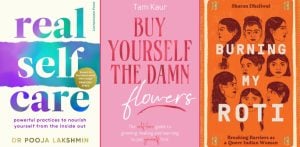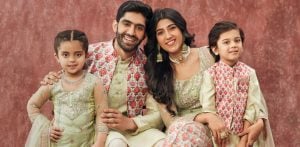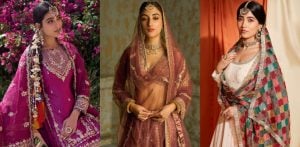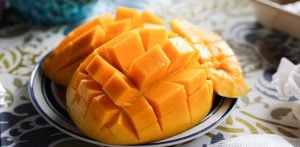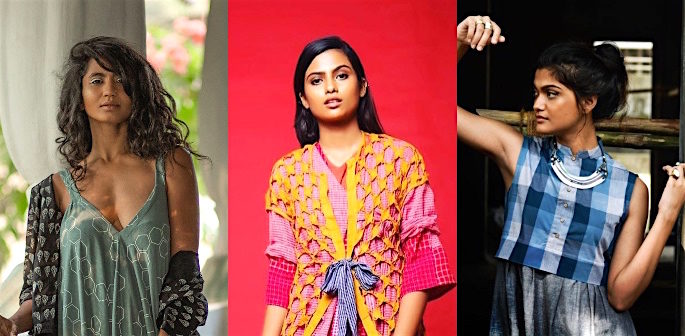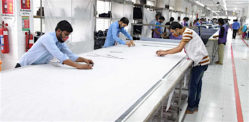Fast fashion is putting our planet in great jeopardy.
In recent years, consumers are becoming more aware of how the clothes they wear impacts their environment which has seen a rise in demand for eco-friendly fashion.
With words such as “sustainability” and “climate change” hitting more headlines, people are shifting their purchasing decisions to ensure a cleaner environment.
Indian clothing brands and fashion houses have seen a heightened desire for eco-friendly fashion. Consumers are becoming more aware of the exploitation of workers and animals during the production of fast fashion.
While many Desi men and women adore beautifully intricate fashion to express themselves, doing so at the cost of environmental wellbeing is not acceptable.
Consumers are demanding more eco-friendly or ethical fashion.
Ethical fashion has been created to combat the detrimental effect on the environment. It includes ethical design, production and sustainability.
Focusing on good working conditions, lack of animal injury and fair trade, eco-friendly fashion is a philosophy and growing movement within India and Indian communities.
Many brands in India have started to pay more attention to the human impact on the environment for fashion, moving in a more harmonious direction.
There are several ways in which such brands are doing this:
- Proving workers with good working conditions
- Fairtrade – paying workers the correct wage
- Discouraging the use of chemicals by using natural dyes
- Minimising the use of animal products within their materials in favour of eco-friendly fabrics
- Recycling materials and upcycling old garments
Purchasing Power: Small Steps Make a Big Difference
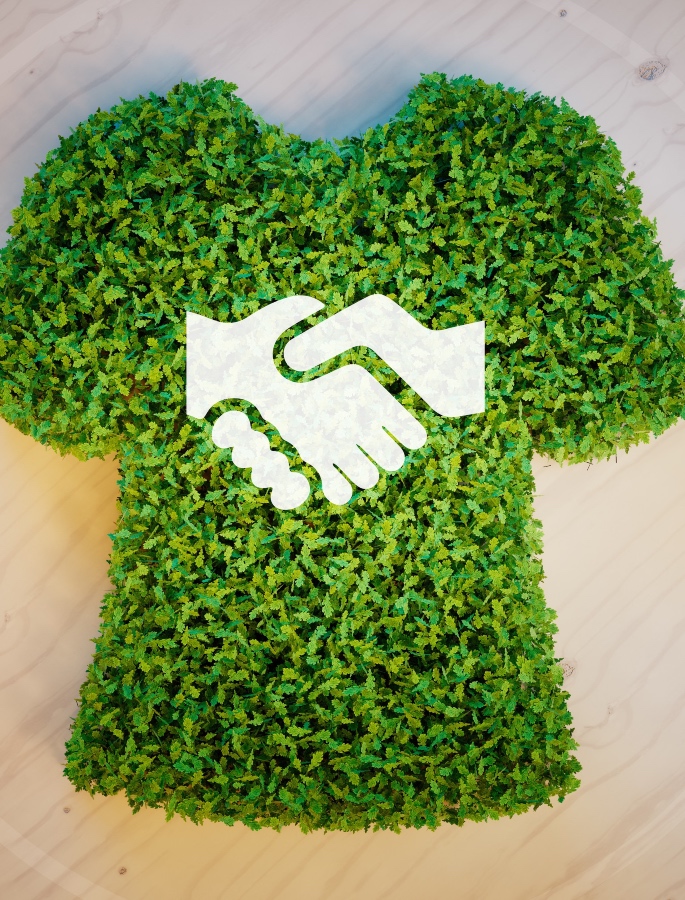
Professional men and women are starting to take responsibility for their daily choices.
People are buying less, investing in long-lasting pieces and are showing interest in the production of their garments.
Environmental activists are promoting eco-friendly fashion by urging people to invest in staple pieces to avoid unnecessary purchases. These items can even become priceless assets to your wardrobe.
Research is important when shopping. How are brands using the term “transparency”? Do they really mean it? Are they paying factory workers a fair wage? Are they harming animals in their process?
“Are the materials they use sustainable?”
Ethical practices within eco-friendly fashion are integral. It is quite easy to forget the impact of your purchase as a buyer – but it is enormous.
Many clothing companies have sought new ways to create sustainably sourced pieces, some even banning the use of real leather in favour of faux leather due to protests from companies such as PETA.
Whether you are dressing for an important meeting, durability or comfort, it is important to find outfits that you enjoy wearing but reflects an eco-friendly fashion future.
The Risk of Fast Fashion
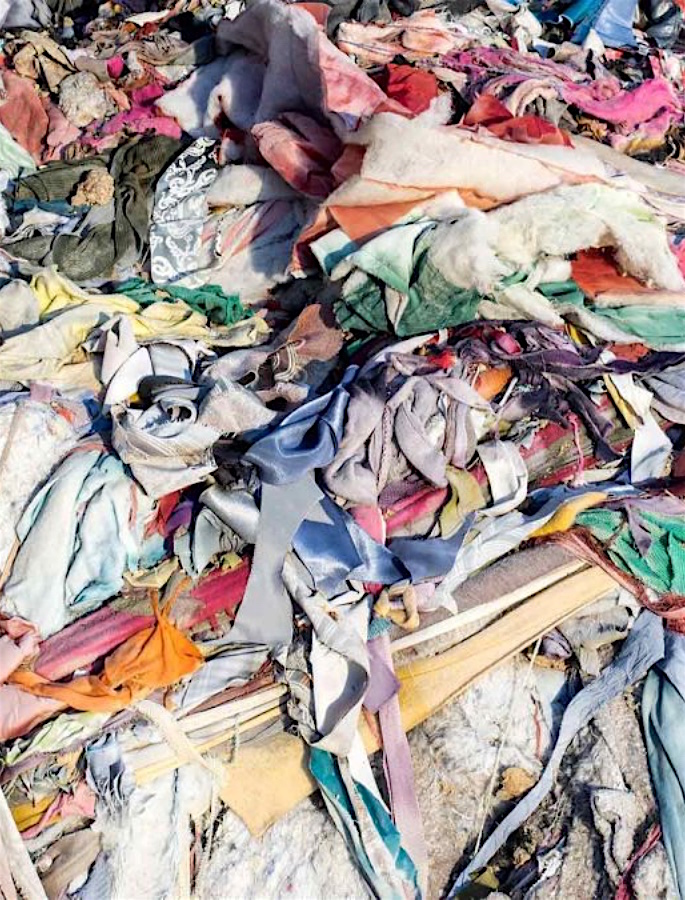
One of the most prominent sources of damage to a sustainable future is what is known as “fast fashion”.
Fast fashion is the label given to clothes that are made incredibly cheaply and shipped quickly to stores and consumers to meet demands for new styles.
The rapid pace that these garments need to be made and in consumers’ hands has dire consequences. Clothes are made from non-recyclable materials; workers are made to live and work in subhuman conditions and are not paid a fair wage.
Fast fashion is putting our planet in great jeopardy.
Melissa Nataadiningrat, a brand and product entrepreneur, says:
“True sustainability comes when the entire supply chain of that bamboo is sustainable.
“However, we haven’t truly achieved an ecosystem of true sustainability when we’re still reading about deforestation, water contamination and shortage, and big business farming putting small farmers out of their livelihoods.
“We have to understand that a supply chain is its own ecosystem that must be sustained and supported indefinitely in order for the world to see true environmental impact. We must design, develop, and manufacture into that premise.”
In addition, Megan Eddings, founder and CEO of Accel Lifestyle, has developed a sustainable fabric that is more environmentally-friendly.
She has created an exclusive fabric that includes Supima cotton. With patents pending in 120 countries, her fabric is a softer, stronger, more versatile fabric with anti-microbial properties.
Eddings states that:
“Micro-plastics are a huge concern for not only the environment, but also our health. These synthetic fibres eventually end up in the oceans, ocean life and our mouths.”
In light of this, Indian brands are also implementing ethical steps into their businesses in order to help combat the damage to our planet.
Here are 10 eco-friendly fashion brands in India that are working hard to add to this effort.
No Nasties
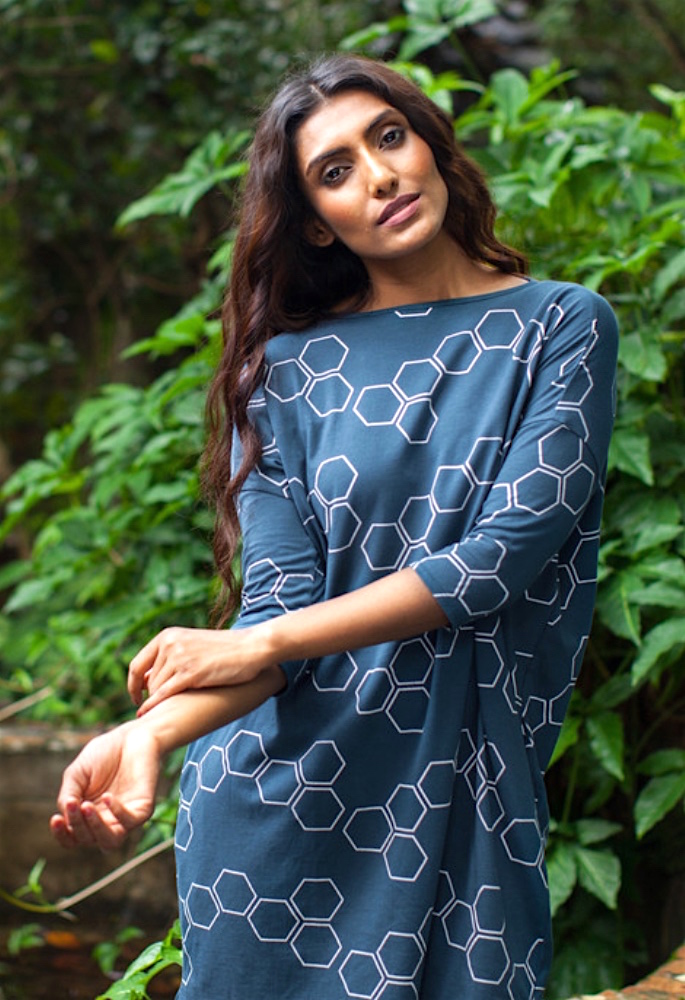
No Nasties is an organic, fair trade and vegan clothing brand in India.
With their headquarters in Goa, it is a business with a small team of 10 who pride themselves on their 100% clean sustainability in every part of the production process.
Each time No Nasties sell a product online, get a new email signup and every new day they are in business, they plant a tree. Planted in their No Nasties Grove, this is aimed to help deforestation in India.
Their target market includes women, children and men which reflects their mission statement: “We care for our planet and everyone on it.”
Eco-friendly fashion is integrated into the soul of this brand. Their organic cotton has no GMO seeds or toxic chemicals; they are fair trade certified with no child labour of unsafe factories; they refuse to use fur, wool, silk or leather which has been rewarded with a vegan stamp of approval by PETA.
Moreover, No Nasties “don’t like plastics” therefore all of their packagings are reusable and recyclable.
All of their clothes are packed in an organic cotton drawstring bag and shipped (free of charge in India) in a recycled cardboard box. This box itself is self-sealing so doesn’t require any plastic tape!
Cotton farmers in India are dying by suicide at an alarming rate of one every 30 minutes.
One of the biggest problems that the business seeks to combat is the fact that cotton farmers in India are dying by suicide at an alarming rate of one every 30 minutes.
There have been over 300,000 farmer suicides in the past 20 years. Much of this is because farmers have to bear the high costs of “modern” farming using genetically-modified seeds and synthetic farm inputs.
This has resulted in unreliable yields causing them to be caught in a vicious cycle of debt where they feel their only escape is to take their own life.
No Nasties wanted to do something about this – at a deeper level than just grassroots.
Their use of organic cotton is helping create change. Grown using natural seeds (not GMO) and using natural means of pest and weed control costs farmers less (eliminating high debt and eventually, suicides!), and it costs the planet a lot less too in water and energy savings.
It is cleaner as it maintains soil health and eliminates toxic chemicals from entering our water streams.
Doodlage
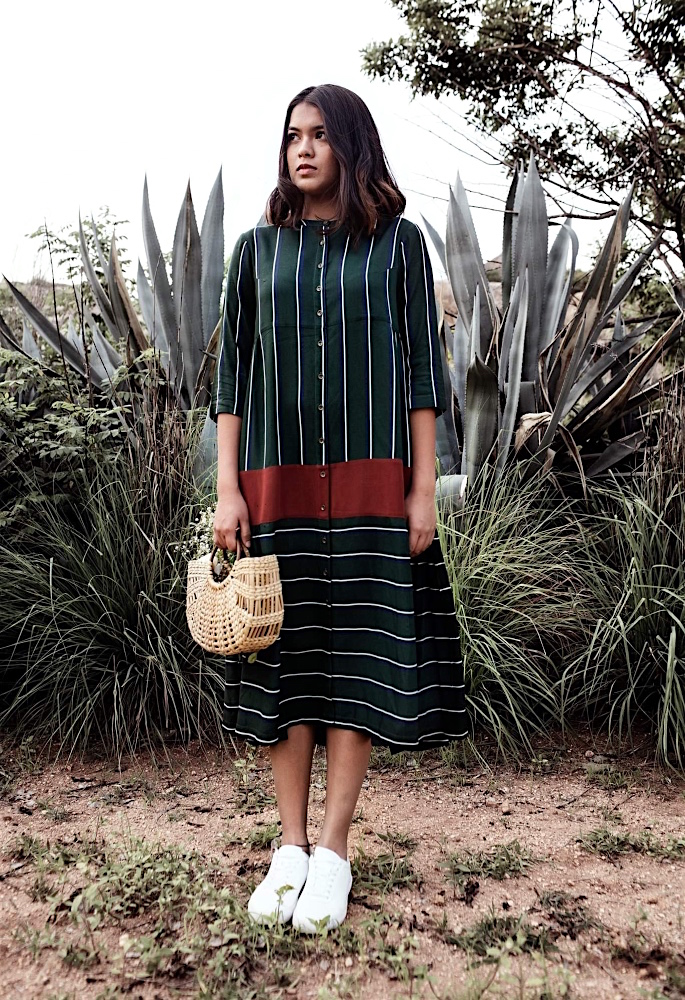
Doodlage is an Indian clothing company that focuses on upcycling factory waste, recycling post-consumer waste and converting their own waste into paper and accessories.
Reusing resources to create fashionable clothing and accessory products for men and women, Doodlage seek to create ethical production and achieving zero waste.
Kriti Tula, the co-founder of Doodlage, found that her cultural experiences as a child in relation to upcycling inspired her gravitation towards this career choice.
“As a kid raised in the 90s in India, upcycling was a deeply rooted tradition. Every garment was cherished, and every piece lasted more than we hoped.
“We were simply not so wasteful, and everything was less disposable as everyone had much less money to spend.
“In our current climate, we are paying the cost of bad production today.”
People across the world stopped accounting for the natural resources and careless disposal of hazardous waste.
This company aim to increase awareness of this problem across Indian communities and seek to upcycle waste to create well-executed designs that can be worn during all seasons.
Paras Arora, co-founder of Doodlage says:
“What we waste is segregated and converted into accessories, soft furnishing products and paper to make our packaging or stationery products.
“All our pieces and fabrics are made with ethical production units and our packaging is designed to be plastic-free.”
The Pot Plant
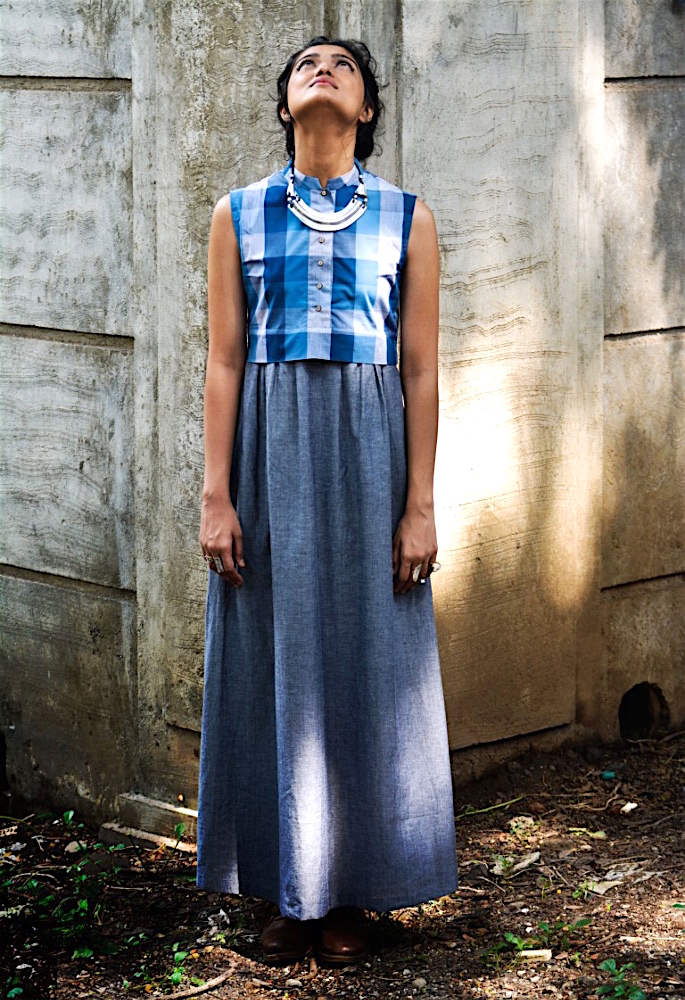
The Pot Plant is a clothing company made in India who design sustainable collections all year round.
Their eco-friendly designs are crafted from natural fabrics and focus on congenial silhouettes accentuated with hand-made techniques.
The Pot Plant adores contemporary and relaxed designs that appeal to their target audience in India and beyond.
Their product range is vast with traditional Asian clothing and influence being at the forefront. Items include ethnic wear, comfortable clothing, business wear, handmade sarees, kurta, kaftans and more.
What is striking is that much of their eco-friendly items are gender-neutral, inviting everyone to get on board with this sustainable lifestyle.
Organic cotton is a big part of the company’s materials and production process. Not only is it cheap but it is cleaner and kinder to the environment.
Upasana
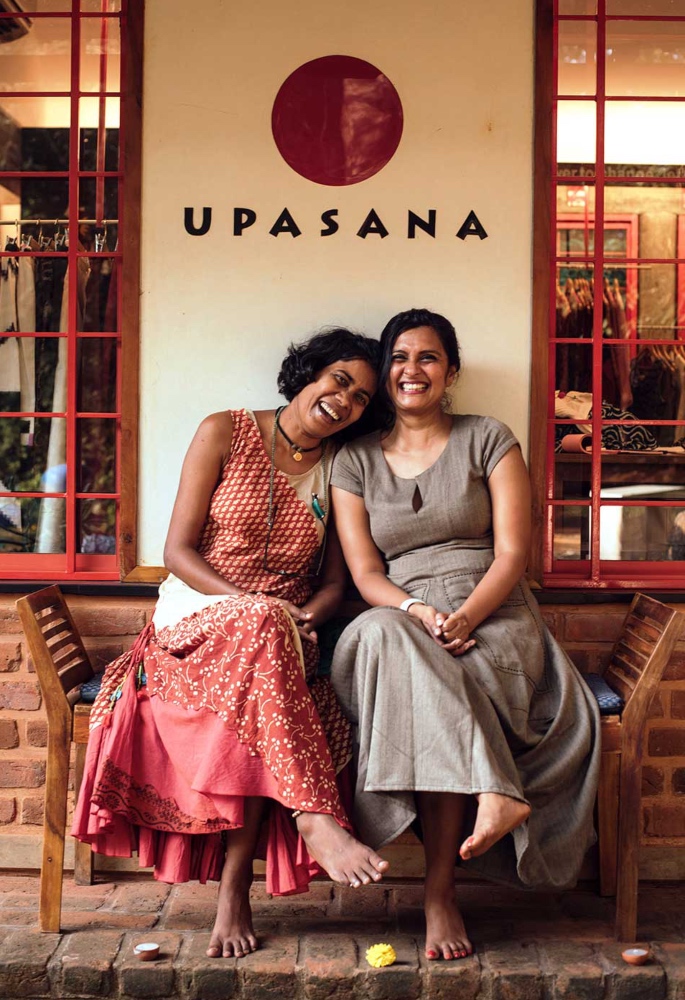
Upasana is an eco-friendly and sustainable clothing brand located in Auroville, Tamil Nadu in Southern India that has conscious clothing dedicated to holistic wellness; ethical practices; handloom heritage; and simplicity.
They pride themselves on being a place where creativity, fashion, design and Indian culture gets woven seamlessly together with social responsibility and business.
This fashion brand is on a mission to change lives across India. The team there look at social problems and innovatively use design to solve such problems.
Some of the issues they seek to aid are the people affected by post-tsunami trauma to farmer suicides. They also look at the wastage problem to littering and the use of plastic bags.
Their products include a range of women’s clothing and accessories that seek to help combat such issues.
Upasana relish in the idea of gifting conscious fashion. Sharing the belief of a better and safer world with your friends and family is something they feel passionate about. They have an entire section dedicated to gifts such as upcycled tote bags for their consumers.
To them, fashion is about merging contemporary styles with the labour of love exhibited from some of the most skilled craftsmen in the country. Upasana says:
“By reviving traditional Indian practices, we have been able to use organic materials to design products that make more than just a style statement.”
Upasana know that clothing has the power to change lives – the lives of farmers, spinners, weavers, printers, designers and so many more.
They honour flaws in weaving as part of honouring life, streak of shade in dye as part of natural shades.
Speaking of their own company story, they say:
“We silently celebrate the fading of natural dyes as we gracefully watch ourselves change through time. We design for mortality while honouring life, nature and inner growth.”
Creating conscious sustainable fashion where they are taking care of our environmental cost and not passing it on to the future is their mission.
For Upasana, design is creative, problem-solving. Upasana looks at social issues as a space to exercise for a change.
From these societal problems were born the following projects:
- Kapas – organic cotton project with families of Madurai
- Varanasi Weavers – a project with the weaving communities of Varanasi
- Tsunamika – a tsunami-related project providing livelihood to fisherwomen
- Paruthi – India’s local organic brand to support India’s organic farming community
- Small Steps – compact bags as an alternative to plastic bags
Natural dyes are colourants that have been derived from natural sources. Upasana uses them in their clothing.
While most come from plants and are extracted from leaves, flowers, roots and wood, there is also a variety that can be derived from mineral compounds and invertebrates.
Along with indigo, one of the oldest textile dyes, they use a range of natural dyes in our clothes like sandalwood and tulsi.
“Organic cotton is grown using methods and materials that have a low impact on the environment.”
It is the most skin-friendly, health-friendly and environmentally-friendly textile in the world.
What makes it different from normal cotton production is that it is made by natural processes and doesn’t rely on artificial fertilisers.
This means the soil it grows in stays uncontaminated. This conscious move is something that adds to their eco-friendly fashion approach.
Ka-Sha India
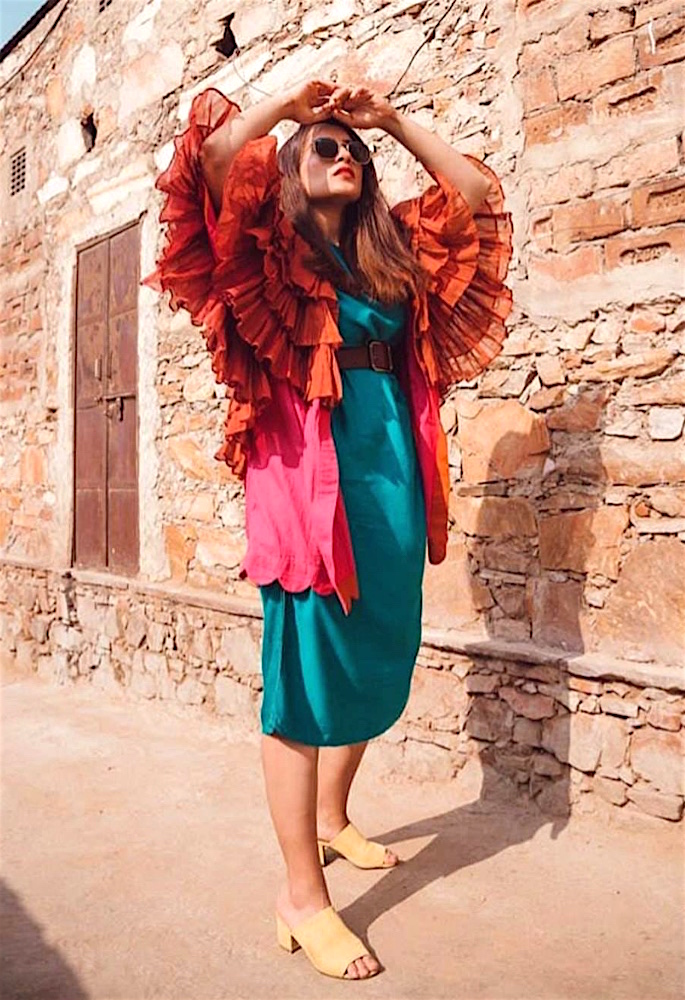
Celebrating the roots of India, Ka-Sha focuses on clothing as a form of story-telling. Sending messages of the traveller, the wanderer and the multiple roles we play in society, this eco-friendly brand celebrates craft in all its glory.
They engage craftsmanship from across India that seeks to employ those with contemporary design and quality materials that are sustainable and clean.
Ka-Sha India’s endeavour is to simply stay mindful of their processes & people along the journey of our clothing from idea to use.
This shop was co-founded by Karishma Shahani Khan and Wasim Khan.
They use natural fibres and have launched a zero-waste campaign called “Heart to Haat”.
Heart to Haat aims to be more sustainable. It is a campaign that delves deep into the existential questions of our conscious – or often unconscious – practices.
It celebrates the roots of India in all its vitality and vibrancy, firmly expressing their love for ethically-made handcrafts.
Reduce. Repurpose. Reclaim.
These are three words that Ka-Sha India and its campaign Heart to Haat seek to adhere to. It focuses solely on post-production remnants and using innovative techniques to give them a new life.
Furthermore, they provide essential services such as mending and repairing pre-loved clothing so you can upcycle or donate your clothes as well as re-use them for a longer life!
Good Earth
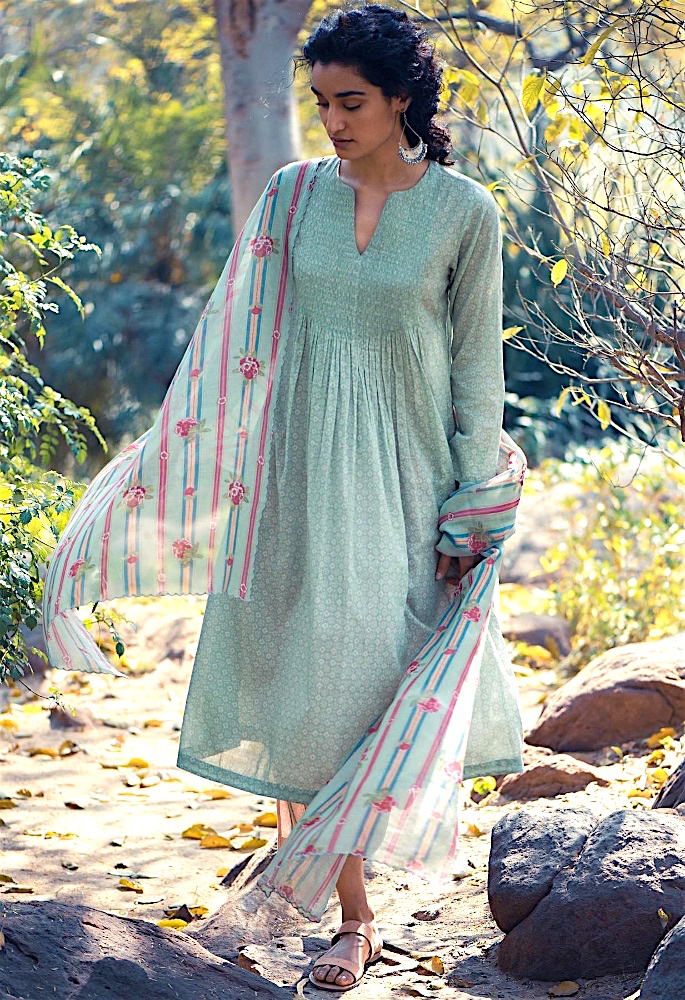
Good Earth is an Indian ethical luxury clothing brand who are based in Jodhpur.
Tucked away within the winding alleyways in the city, a Good Earth store stands. The serene and quiet atmosphere is something that their loyal following enjoys.
As a visual and experiential brand, Good Earth is a place where craft and luxury merge with sustainability and ethics.
At first glance, one of the most prominent features of the brand is their seductively gorgeous prints and an array of stylish clothing.
The surprise bonus is that every item is sustainably produced and supportive of age-old craft traditions. Working with traditional craftsmen not only provides unique designs but ensure jobs remain intact.
Anita Lal, the founder of Good Earth, enjoys combining sustainable luxury material such as hand-spun cotton and lush mulberry silks along with paisley motifs and geometric patterns, bringing the staples of Indian fashion to the high end.
Chola The Label
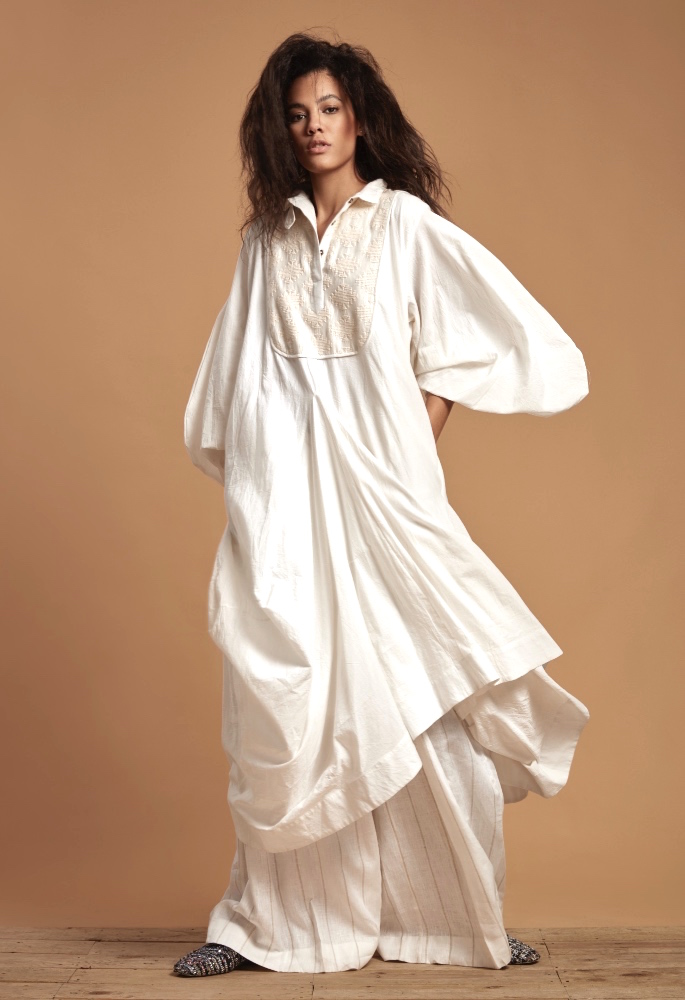
Founded in 2015 by Sohaya Misra, Chola was first exhibited at a trunk show in Mumbai. Since then it has steadily become an accessible luxury apparel brand. It has an ethos of simple and soulful design.
Misra believes strongly in the mantra of “less is more” and therefore creates designs that keep the integrity of fabrics, limiting wastage.
Clean lines, attention to detail and recycling are some of the hallmarks of Chola fashion.
Another facet specific to the brand is the versatile appeal of separates that allow layering in many different ways for a fresh look and appeal every time the clothes are worn.
Misra was invited by Lakme Fashion Week to showcase garments made of recycled fabrics created out of post-consumer waste. This collection was designed and curated with recycled cotton.
This mirrors the label’s design sensibilities of using free-cutting methodologies that utilise minimal wastage, an approach well complemented by its fabrics made out of post-consumer waste.
Nicobar
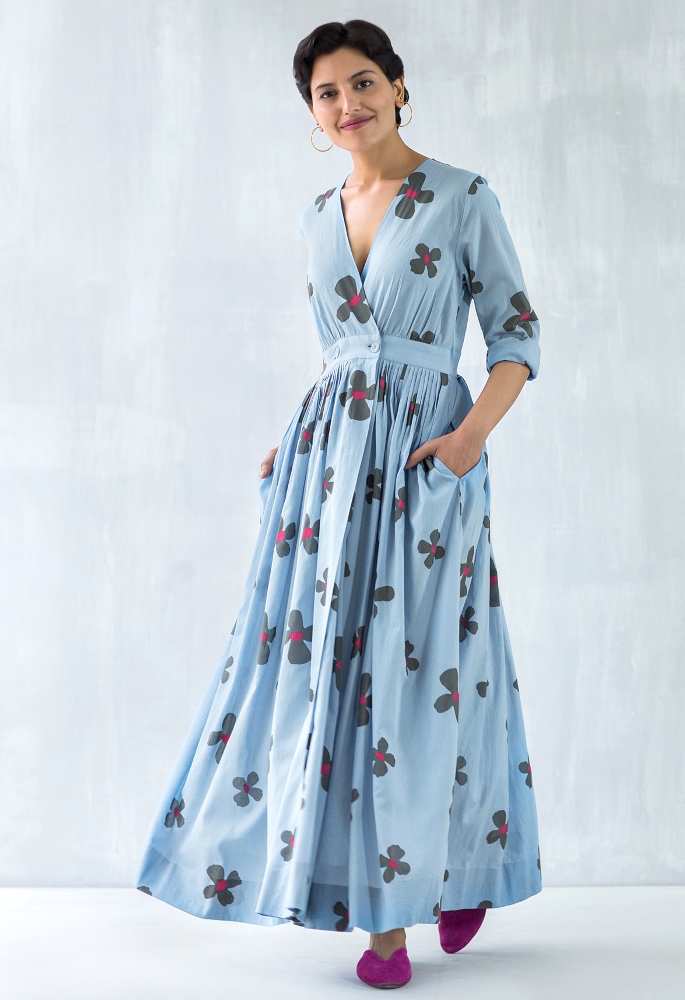
Nicobar is an Indian eco-friendly contemporary lifestyle brand that makes clothing as well as home décor and travel accessories.
Inspired by the Indian Ocean, the founders, Simran Lal and Raul Rai sought to create a relaxed island aesthetic. On the topic of company philosophy, they say:
“We’re a company that believes in culture as much as commerce, and that journeys are usually as worthy as destinations.”
Their eco-friendly approach to their clothing generates timeless products that are designed to last and are not trend-driven. Ultimately, Nicobar is a brand that communicates a specific philosophy of living.
Rai says:
“We felt the fast fashion pendulum was swinging too far and yearned for products that are designed to last, not trend-driven, and inspired by natural design and materials.”
When looking at Nicobar’s clothing, you will be transported into a world of beautiful bamboo dresses, organic cotton and tropical-inspired eco-friendly home wear – perfect items for the beach.
Moreover, conscious consumption is something that this brand implements. They have managed to make 85% of packaging plastic-free.
However, they acknowledge that some of their e-commerce orders still use bubble wrap which they are actively working on improving.
Nonetheless, they have swapped entirely to organic cotton in their Core range which has proved popular across India.
Hoomanwear
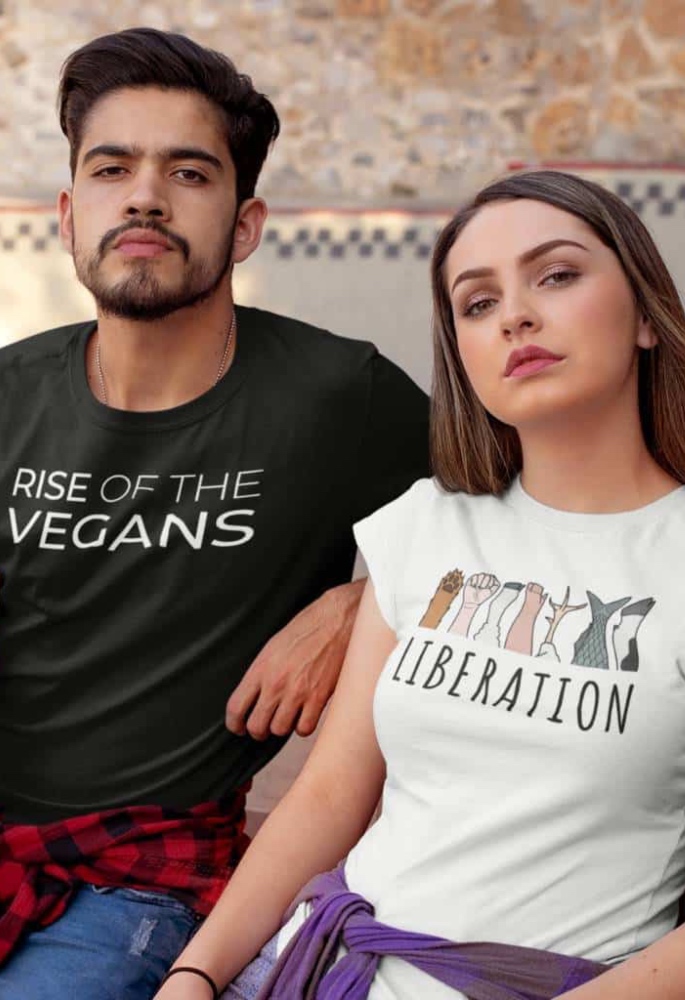
Launched in January 2019, Hoomanwear believes that meaningful fashion transcends the individual and unites people for a cause.
Hooman is a Persian word that literally translates to “I have good thoughts, good words, and good deeds.”
The founder of the eco-friendly brand, Hashil Vora, questioned:
“What if we united humans to stand for social causes, environmental issues, shared ideas, good values, positive behaviours, healthy habits and empowering beliefs?
“What if they led powerful conversations that drive social change? What if they also raised resources and support for amazing NGOs?”
These questions are what started India’s first cause-wear brand, which donates at least 30% of its profits to organisations involving in meaningful social work.
Founded by a passionate vegan, all the t-shirts, crop tops and hoodies are plant-based with less than 5% synthetic fibres embedded within them. They are only made on-demand which means there is zero waste.
“The inks they use to print designs are sustainable and free of animal ingredients.”
The delivery is also as eco-friendly as possible as the clothing is delivered in recycled pizza boxes or cloth bags!
Hoomanwear seeks to elevate humanity’s collective consciousness by designing eco-friendly fashion.
They believe that if we want to see a new world then we each much begin taking responsibility for helping create it.
Therefore, their powerful designs on sustainable clothing is a unique business in India that even gives back to NGOs.
Himalayan Blooms

Creating winter-inspired eco-friendly fashion, Pratibha Krishnaiah created Himalayan Blooms in the remote village of Kheti Khan.
This is a social enterprise business that aims to create financial independence for local women.
Using acrylic yarn and cotton (no wool), they knit stunning ponchos, sweaters, scarfs and neck warmers – available for India wide delivery right from the heart of the Himalayas.
They use locally produced goods; help schools improve the quality of education; and assist farmers in by installing groundwater charging wells.
Through their work, they intended to provide relief to the poor, distressed and underprivileged.
This effort reduces the need for the relocation of people to already crowded urban areas, to seek employment.
The knitters are adopting new technology skills through the use of laptops and the internet to explore new designs, entering data and record keeping.
This has improved the morale among the women, uplifting their confidence and helping their household income.
The Himalayan region is composed of hilly terrain; limited industry; and a population highly dependent on agricultural income. The severe summer water shortages have negatively impacted the income from crops.
Himalayan Blooms seek to develop training facilities to help assist with rainwater harvesting through the installation of water charging wells that catch water during the rainy season.
This would increase groundwater retention and reduce summer water shortage.
Each of these 10 brands evidently sells eco-friendly fashion that contributes to their local communities, celebrates Indian culture and reduces environmental waste.
Whilst sustainability and the rise of veganism should not be taken as a “trend” given its importance to save our planet.
This is because it is something that these brands encourage everyone to take part in, buy from and implement into your lifestyle.
Becoming more conscious of our purchasing habits as consumers are more important than ever. With brands like these selling beautiful garments that are also eco-friendly, there is so much to look forward to about the future of clean and kind fashion.





